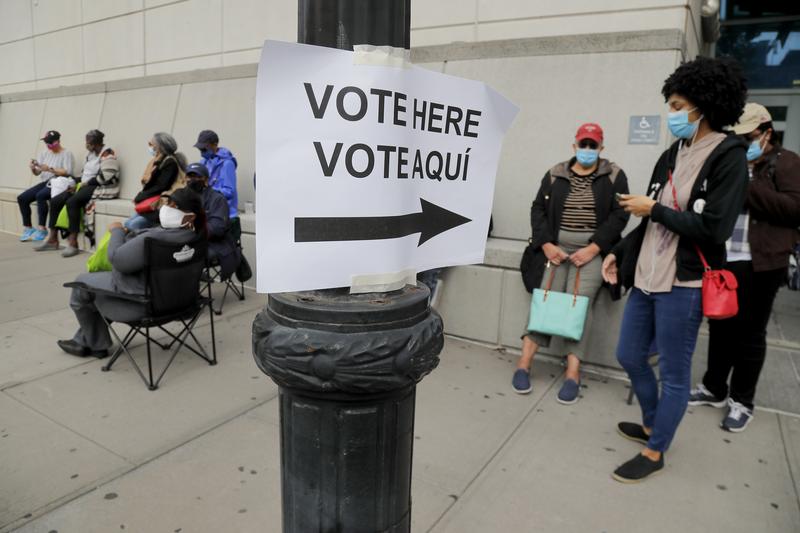
For months now, President Trump has made it clear that he may only accept the results of the 2020 election if he wins. What's not clear is what will happen in the days and weeks after Election Day, and what a refusal to step down would mean for the United States.
While the country has gone through hotly contested presidential elections in the past, a defeated president refusing to vacate the White House by Inauguration Day would be a new experience in American history. But as Cardozo School of Law professor Deborah Pearlstein wrote in a recent piece for the law and policy forum "Just Security," the election doesn't end on Election Day, and there are several possibilities for how a contested election could play out within the bounds laid out in the U.S. Constitution. But even so, Pearlstein tells WNYC's Jami Floyd that it won't be an easy process if the results are questioned.
"If questions arise, if the election is close, if there are disputes over the true winner, we might be in for a very difficult December and January," Pearlstein says.
For the full conversation, click "Listen."
